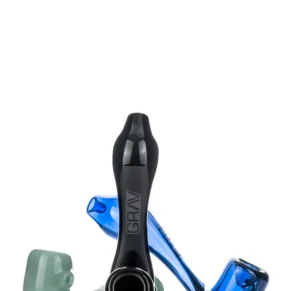Understanding Vessel Cones: A Comprehensive Overview
In the realm of engineering and fluid dynamics, the term vessel cone refers to a tapered structure commonly utilized in various applications. These cones are essential in facilitating efficient fluid flow, especially in storage tanks and process vessels. Understanding the design, functionality, and applications of vessel cones can significantly impact the efficiency of industrial operations.
What is a Vessel Cone?
A vessel cone is a conical component typically found at the bottom of storage tanks or process vessels. Its primary purpose is to provide a smooth transition for fluids as they exit the vessel. This design not only reduces turbulence but also enhances the velocity of the fluid, promoting better drainage and minimizing residue buildup.
Vessel cones are engineered to accommodate different types of materials and can vary in size, angle, and thickness, depending on the requirements of the process they serve. By optimizing these factors, engineers can ensure that the vessel cone effectively meets the specific demands of fluid dynamics.
Benefits of Using Vessel Cones
1. Enhanced Fluid Flow: One of the main advantages of incorporating a vessel cone is the improved flow characteristics it offers. The conical shape allows fluids to exit the vessel more smoothly, reducing the risk of backpressure and allowing for efficient drainage.
2. Reduced Turbulence: The design of vessel cones minimizes turbulence during fluid exit. This is crucial in processes where the quality of the fluid must be maintained, such as in the food and beverage or pharmaceuticals industries. By controlling turbulence, the vessel cone contributes to consistency in product quality.
3. Space Efficiency: Vessel cones occupy less space compared to traditional flat-bottomed vessels, allowing for better arrangement in limited spaces. This compact design can lead to significant savings in construction and operational costs.
4. Adaptability to Different Fluids: Vessel cones can be designed to accommodate a wide range of fluids, from water to viscous liquids. Depending on the application, different materials and coatings can be applied to the cone to ensure compatibility with the stored substances.
Applications of Vessel Cones
Vessel cones find application in various industries, ensuring optimal fluid management and flow control. Here are some key sectors where vessel cones are extensively used:
1. Chemical Processing
In chemical plants, vessel cones are integral to reactors and storage tanks, enabling efficient mixing and discharge of chemicals. Their ability to handle corrosive materials and high pressures makes them ideal for this application.
2. Food and Beverage Industry
In food processing units, vessel cones ensure that products are drained efficiently without compromising quality. The reduction of turbulence aids in maintaining flavors and consistency in beverages, sauces, and other food items.
3. Wastewater Treatment
Many wastewater treatment facilities employ vessel cones in their sedimentation tanks. The conical shape allows for effective sludge removal, leading to more efficient treatment processes and better environmental outcomes.
4. Oil and Gas
In the oil and gas industry, vessel cones are essential for separators and storage tanks. They optimize the flow of hydrocarbons and minimize the risk of blockages, contributing to safer and more efficient operations.
Designing an Effective Vessel Cone
When designing a vessel cone, several factors must be considered:
– Cone Angle: The angle of the cone affects fluid dynamics significantly. A steeper angle may facilitate faster drainage, while a gentler slope can reduce turbulence.
– Material Selection: The choice of material depends on the fluid being processed. Factors such as temperature, pressure, and chemical compatibility must be addressed to ensure durability and efficiency.
– Size and Capacity: The dimensions of the cone should correspond to the volume of fluid it is expected to handle. Proper sizing ensures that the cone performs its function without causing bottlenecks in the system.
Conclusion
Understanding vessel cones is crucial for anyone involved in fluid management and industrial processes. Their design plays a significant role in determining the efficiency and effectiveness of fluid flow within various applications. By focusing on the benefits and applications of vessel cones, industries can enhance their operational performance significantly. Whether in chemical processing, food production, wastewater management, or oil and gas, the implementation of well-designed vessel cones is paramount for achieving optimum fluid dynamics.





Reviews
There are no reviews yet.